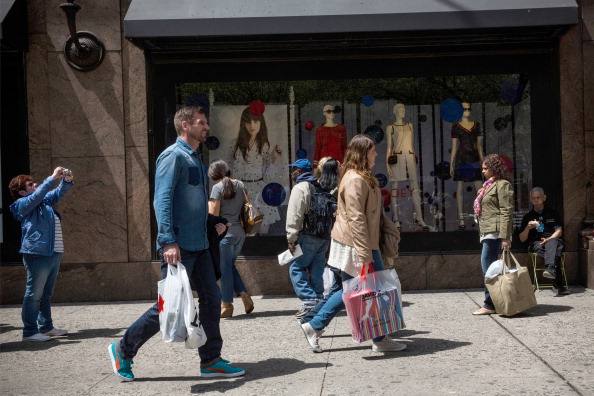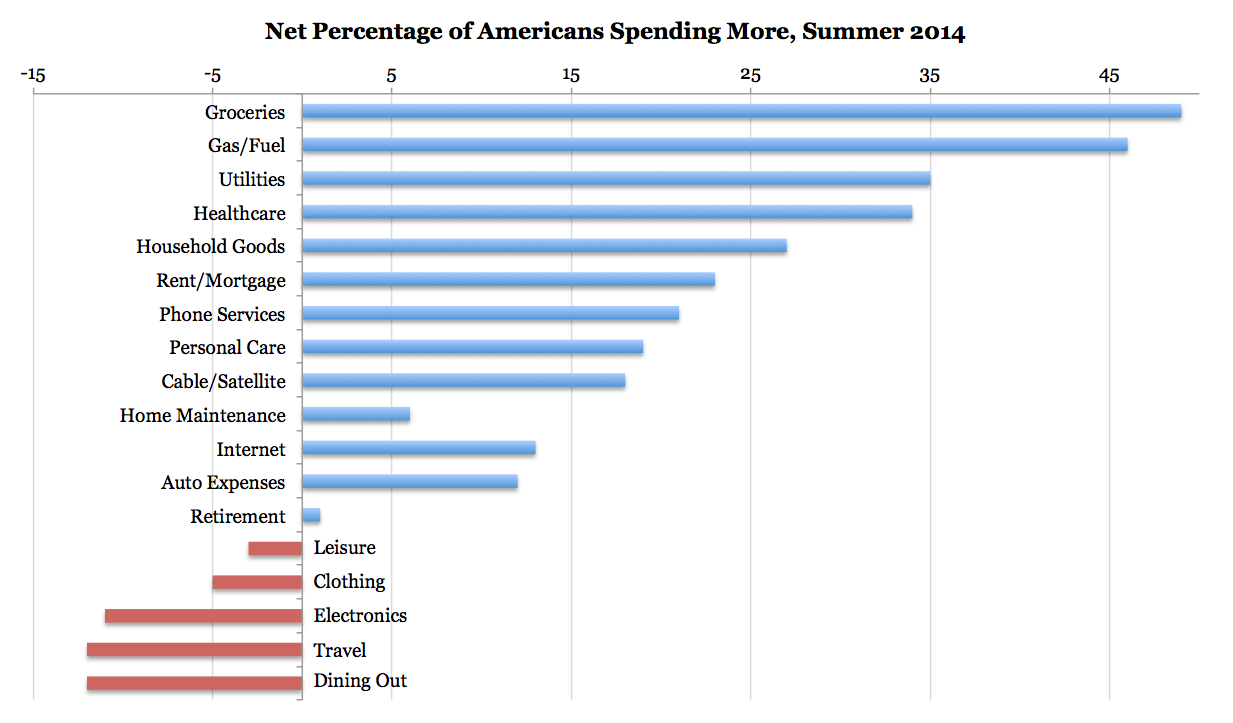
A sizable chunk of Americans are cutting spending on fun activities this summer, while nearly half have upped their spending on household essentials, a new survey reports.
The biggest changes are in the kitchen, with a net percentage of 49% of Americans spending more on groceries, while 12% are cutting dollars put to dining out, according to the first Gallup poll to retroactively survey U.S. spending habits, comparing those of June this year and last year. Additionally, spending on gas, utilities and healthcare rose, while spending on travel, electronics and clothes dipped.

The findings arrive amidst rising prices of essential living items that are cannibalizing money that American families had previously budgeted to luxury or leisure activities, according to Gallup. Food prices, especially, have increased in recent months, with the U.S. Department of Agriculture predicting a 2.5 to 3.5% rise over 2013 levels. Gas prices are up too, with a 20 cent rise from last year’s summer. And already the bulk of Americans have felt the effects: between traveling and eating, this year’s Fourth of July was deemed the most expensive yet.
“These results paint a picture of consumers straining against rising prices on daily essentials to afford summer travel, dining out, and discretionary household purchases — the kinds of purchases that ordinarily keep an economy humming,” the Gallup report stated.
But Gallup data suggest that Americans aren’t willing to give up their fun altogether, even if that means they’re purchasing accommodations less lavish than before. Despite spending less money on traveling, for example, Americans are actually traveling more, made possible by increasing amounts of people deciding to travel somewhere close to home. Most Americans will travel by car this summer, with 69% planning to take a trip this summer, compared to 52% in 2009 during the recession.
Still, the real damage of Americans having less fun isn’t necessarily spiritual: it’s economic.
“Because consumer spending is the lifeblood of a healthy economy, these findings suggest that discretionary spending still has a way to go before it will fuel the kind of economic growth Americans have been hoping for,” the report said.
More Must-Reads from TIME
- Why Trump’s Message Worked on Latino Men
- What Trump’s Win Could Mean for Housing
- The 100 Must-Read Books of 2024
- Sleep Doctors Share the 1 Tip That’s Changed Their Lives
- Column: Let’s Bring Back Romance
- What It’s Like to Have Long COVID As a Kid
- FX’s Say Nothing Is the Must-Watch Political Thriller of 2024
- Merle Bombardieri Is Helping People Make the Baby Decision
Contact us at letters@time.com